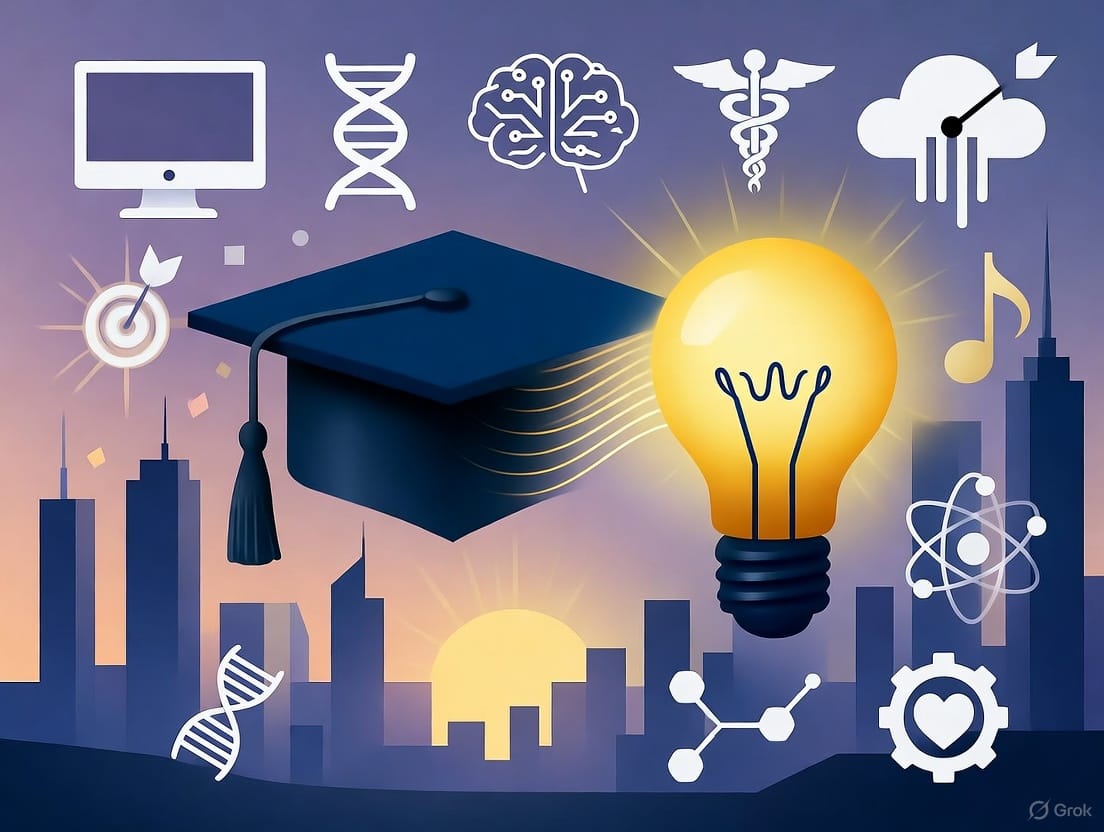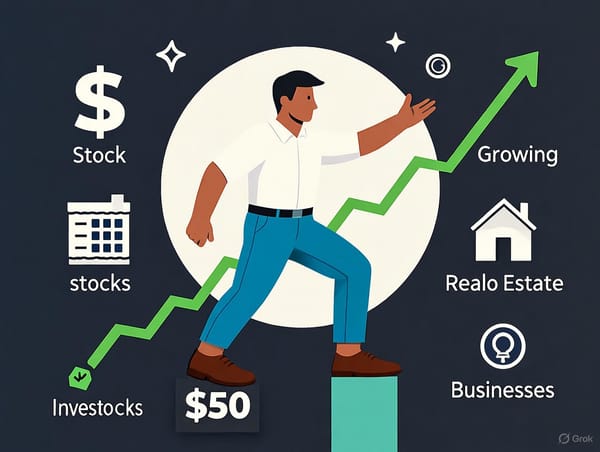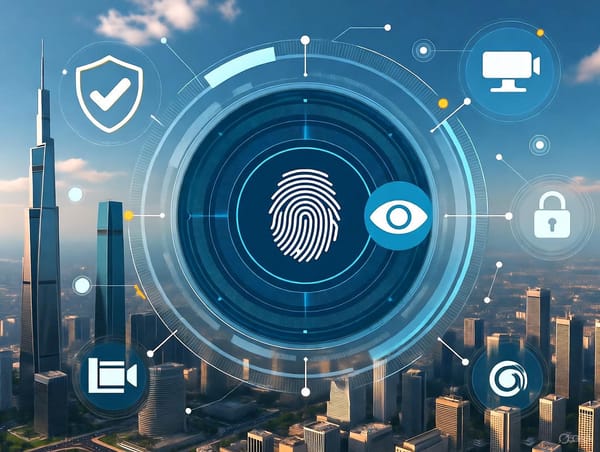From Graduation to Innovation
From graduation to innovation, specialized skills, honed through continuous learning and real-world application, empower professionals to drive progress and shape the future of their industries.

Graduation marks a significant milestone, but for many, it’s just the beginning of a journey toward mastering specialized skills. While formal education provides a foundation, the real-world demands of industries often require professionals to dive deeper, adapt to evolving trends, and ultimately become innovators who push boundaries and lead progress. In this article, we’ll explore how individuals transition from graduates to experts, how they acquire specialized skills, catch up with current trends, and eventually drive innovation to shape the future.
The Post-Graduation Reality
For most, a degree offers a broad knowledge base and critical thinking skills, but it’s often not enough to meet the nuanced demands of a career. Specialized fields—whether in technology, healthcare, engineering, or creative industries—require practical, hands-on expertise that goes beyond the classroom. Graduates quickly realize that real-world problems demand adaptability, continuous learning, and the ability to bridge theoretical knowledge with practical application.
Take, for example, a computer science graduate entering the tech industry. Their degree might cover algorithms and programming basics, but mastering a specific framework like React, Kubernetes, or machine learning requires targeted learning. This is where the journey to specialization begins—through self-study, mentorship, online courses, or on-the-job experience.
Building Specialized Skills
The process of acquiring specialized skills is rarely linear. It involves a combination of deliberate practice, real-world application, and persistence. Here’s how professionals typically develop expertise after graduation:
- On-the-Job Learning: Many professionals learn specialized skills through real-world projects. For instance, a civil engineer might learn advanced structural analysis by working on complex infrastructure projects, applying theoretical knowledge to solve practical challenges.
- Self-Directed Learning: Online platforms like Coursera, Udemy, or specialized bootcamps have democratized access to knowledge. A marketing graduate, for example, might take courses on SEO, data analytics, or social media advertising to specialize in digital marketing.
- Mentorship and Networking: Learning from experienced professionals accelerates skill development. A junior data scientist might shadow a senior colleague to learn advanced techniques in natural language processing or predictive modeling, gaining insights that no textbook could provide.
- Certifications and Advanced Training: Many fields offer certifications to validate specialized skills. For example, a cybersecurity professional might pursue a Certified Information Systems Security Professional (CISSP) certification to deepen their expertise in network security.
- Trial and Error: Mistakes are a powerful teacher. A graphic designer might experiment with new tools like Figma or Adobe XD, learning through iteration to create user-friendly designs that align with industry standards.
This phase of skill-building is intense but rewarding. As individuals invest time and effort, they move from novice to competent practitioner, gradually gaining confidence and proficiency.
Catching Up with Trends
Industries evolve rapidly, driven by technological advancements, market shifts, and societal changes. To stay relevant, professionals must keep pace with these trends. This requires a mindset of lifelong learning and adaptability. Here’s how experts ensure they’re always ahead of the curve:
- Continuous Education: Subscribing to industry journals, attending webinars, or participating in conferences helps professionals stay updated. A healthcare professional, for instance, might attend seminars on telemedicine to understand its impact on patient care.
- Engaging with Communities: Online forums, X posts, and professional networks like LinkedIn allow experts to exchange ideas and stay informed. A software developer might follow X discussions on emerging programming languages like Rust or Go to gauge their relevance.
- Experimentation: Trying new tools or methodologies keeps professionals agile. A product manager might adopt Agile or Scrum frameworks to align with modern project management trends, experimenting to find what works best for their team.
- Feedback Loops: Seeking feedback from peers, clients, or users helps professionals refine their skills. A UX designer, for example, might use A/B testing to understand user preferences, ensuring their designs align with current expectations.
By staying curious and proactive, professionals not only catch up with trends but also begin to anticipate them, positioning themselves as thought leaders.
From Expertise to Innovation
Once professionals master their specialized skills and align with industry trends, they often reach a tipping point: they start to innovate. This is where expertise transforms into leadership, driving progress in their field and beyond. Here’s how this transition happens:
- Identifying Gaps: Experts, deeply immersed in their field, can spot inefficiencies or unmet needs. For instance, a renewable energy engineer might notice limitations in current solar panel designs and develop a more efficient prototype.
- Combining Knowledge: Innovation often stems from cross-pollination. A data scientist with expertise in healthcare and AI might create predictive models to improve patient outcomes, blending domains to solve complex problems.
- Taking Risks: Innovation requires boldness. A fintech professional might pioneer a blockchain-based payment system, challenging traditional banking models despite initial skepticism.
- Collaboration: Experts often lead teams, combining their skills with others to amplify impact. A creative director might collaborate with data analysts and developers to launch an immersive augmented reality campaign.
Real-world examples abound. Consider Elon Musk, who leveraged his expertise in software and engineering to innovate in electric vehicles (Tesla) and space exploration (SpaceX). Or look at smaller-scale innovators, like a freelance developer who creates an open-source tool that revolutionizes how teams collaborate remotely. These individuals didn’t stop at mastering skills—they used their expertise to push boundaries.
The Ripple Effect
When experts innovate, their impact extends beyond their immediate field. A single breakthrough can reshape industries, economies, and societies. For instance:
- Technology: Innovations like cloud computing or generative AI have transformed how businesses operate, enabling scalability and creativity.
- Healthcare: Advances in medical imaging or personalized medicine have saved countless lives by improving diagnostics and treatments.
- Sustainability: Engineers specializing in green technologies are driving solutions to combat climate change, from carbon capture to sustainable agriculture.
These advancements start with individuals who commit to mastering specialized skills, staying current, and daring to think differently. Their work creates a ripple effect, inspiring others to learn, adapt, and innovate.
Conclusion
The path from graduation to innovation is a dynamic one, marked by continuous learning, adaptation, and creativity. Specialized skills are the foundation, built through real-world experience, self-study, and mentorship. By staying attuned to trends, professionals evolve into experts who not only keep pace with change but also drive it. These innovators—whether creating groundbreaking technology, revolutionizing healthcare, or reimagining creative industries—lead the world toward progress.
For anyone starting this journey, the message is clear: embrace lifelong learning, seek out challenges, and don’t be afraid to push boundaries. Your specialized skills could be the spark that shapes the future.





